Fireworks. Pierrot le fou.
by Claire Twisselman
[Part of VINYL IS HEAVY's Bastille Day celebration. Click here to see our index. Click here to view all the entries at once. Click here to see Claire's accompanying image essay.]
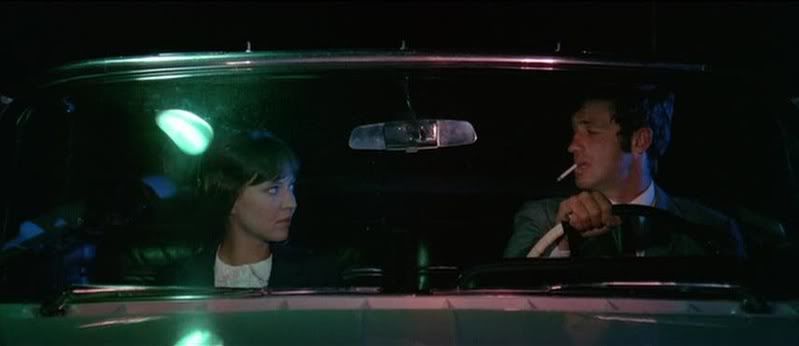
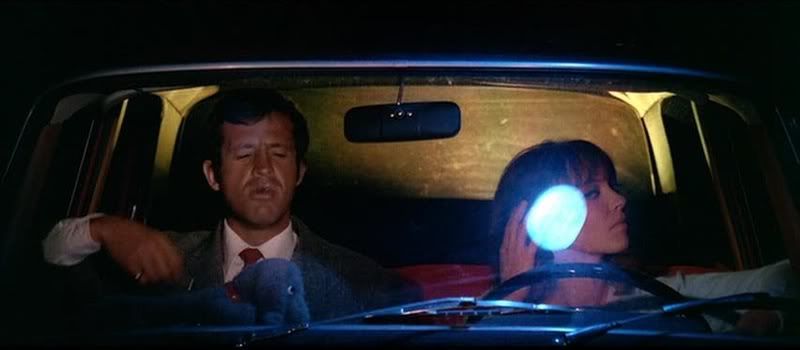
Seeing Pierrot le fou in a big, dark theatre was a turning point for me with movies. I don't think my story is particularly out of the ordinary (see here). Godard is an often-traveled road into more serious film interest. His films are fun, playful, smart, rigorous, sometimes boring, hip, sexy, gorgeous and contradictory candy. And I eat it up. I've read -- and heard others say -- that Godard is a young person's filmmaker; that he's more important to young people than older people. I don't know if this is true, but I do know that his exuberance in the 1960s (like most young people, I haven't yet seen much past Week End) is pretty infectious. His movies are giddy for movies. I've since grown to like Masculin-Feminin more than Pierrot, but Pierrot will always remain dear for kick starting my fascination with a lot of French cinema. Or, at least, what the Criterion Collection has made available.
Originally, I told Master Knight that I wanted to write this when Pierrot was released by Criterion. But, as can be the case, I put school first, hanging out with friends second, reading the internet third and writing about movies for the internet a quite distant fourth. (Something I hope to "correct" in the coming year.) Part of my interest has been that the Criterion Collection has played a big part in my burgeoning cinephilia -- along with the ever-expanding blogosphere, Netflix, certain friends' eager recommendations and the rep scene I'm starting to pay attention to. The other reason I wanted to write about Pierrot is because the first time I saw it was in Berkeley, at the Pacific Film Archive, while visiting a friend who insisted we go (1) because the film was rare and is hilarious and (2) because film historian David Thomson introduced the film. Ryland has since told me that he was at the same screening.
All I knew going in was it was going to be a cool French New Wave film with jump cuts and widescreen images and a doomed love story. That's what my friend told me at least. What I didn't expect was how funny the film is. There's a lot of sight gags but my favorite may be up front when Jean-Paul Belmondo's Ferdinand, so mad at the banal "party" his wife has dragged him to, winds up throwing cake at her.
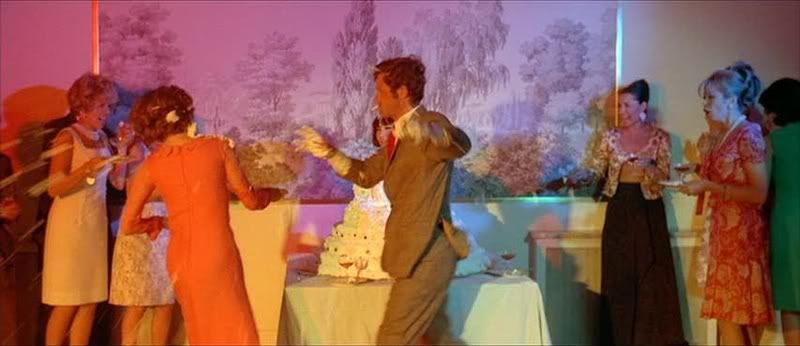
That is, until the final moment with cartoon dynamite and Ferdinand's last second realization that he doesn't want to go up in smoke. Of course, he's too late. If love affairs are all about timing, and this film is certainly about love (that is, an idea or myth of love), then Ferdinand is at once a brilliant, terrible, hopeless and athletic romantic-comic. Or maybe that's just Jean-Paul Belmondo. Who, of course, is Godard's stand-in (his ideal or mythic alter ego), who Godard kills with tongue planted firmly in (blue painted) cheek.
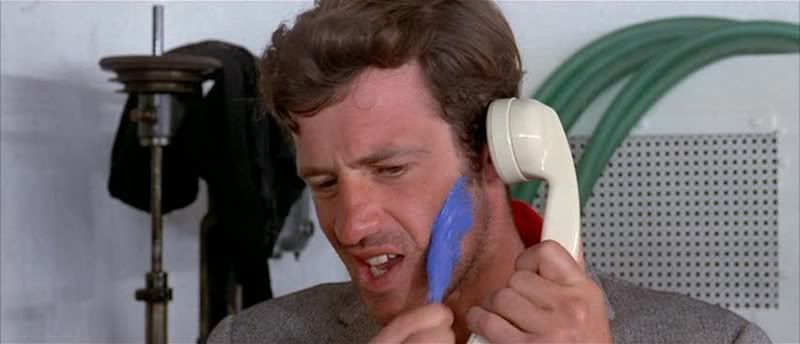
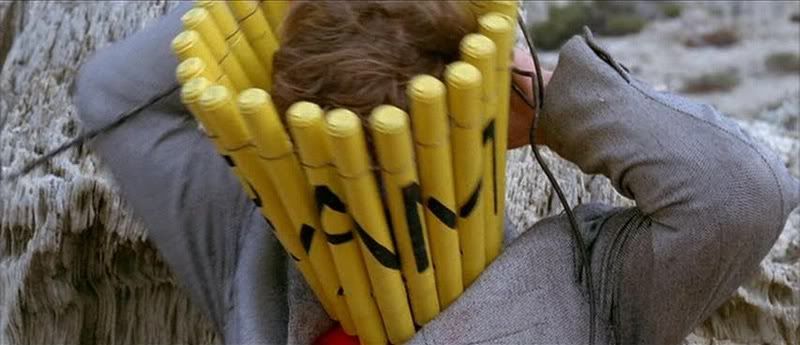
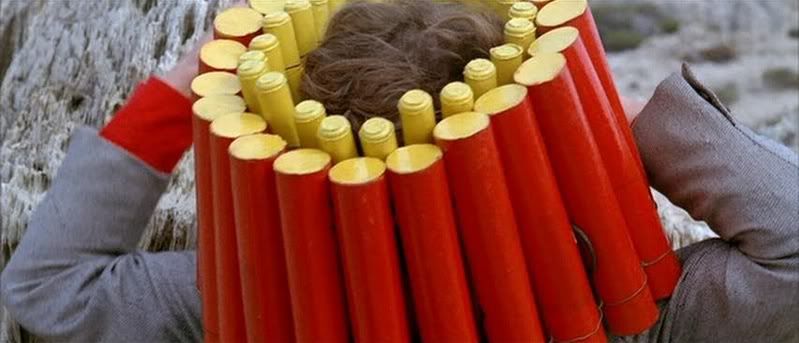

It's certainly easy to think of this movie as Godard killing his already-ended marriage to Anna Karina. It's no doubt a turning point for the director, an awakening to new dimensions of cinema's duty to its audience: which is to say to the world. But, of course, part of what makes Godard interesting is how unsubtle his films shift. Things abut, they don't bleed. He's no Eisenstein but his movies rely on juxtapositions so that it's easy to ignore the in-camera mise-en-scene. Think of the central relationship of Pierrot, a cute flake and her hapless devotee. They're doomed from the beginning. They are their own fireworks. Everywhere they go they leave wreckage. They are ill at ease. In one light, they are Godard's cinema, his bi-polar desires for politically and philosophically aware films over against a B-movie impulse for guns and cars and pure sensation. In another light, the couple is simply an argument about what love does to people, how its impulses sway and push and pull and distort and blow up the world.
But they, that perfectly not perfect couple, brim with possibilities. And that's the appeal of the cinema, too. Furthermore: like Godard's cinema, they take and take and take: they steal their way south. Everything they do is commented on as from some place else, be it a movie or a country or a book or a song. Pierrot le fou is a great argument for recycling! How vomiting up your psyche can be sexy! How theft can turn into production! How (not) to fall in love. And how to look good doing it (or not doing it). The bottom line: keep moving. My favorite Godard movies are the ones that insist on pushing forwards. Although kind of brilliant, La Chinoise is like a stuck-in-a-rutt headache, its Leaud analog, Masculin-Feminin, runs all over the place, even if it spends a lot of time indoors. Also fitting that after his Technicolor adventure here with Pierrot he went back to cheap black and white (with Willy Kurant instead of Raoul Coutard lensing) for a more "documentary" approach. In a lot of ways it seems Pierrot le fou, and not Week End, is the real turning point for Godard's career. The last ditch effort to purge the romance from his system before he could concentrate on more rigorously formal, um, "exercises" -- not fun like the old days, the received wisdom tells me. But I seem to miss or refuse to hear those things. I'm certain that as I continue to look beyond the Criterion Collection and the distinctly New Wave period films I'll find yet more rich material from Godard. Except, I'll have to forge ahead knowing he left a lot of that goofy giveaway pop sensibility behind when he traded in Karina for Wiazemsky. In any event, there's bound to be fireworks in my future, just a different style.
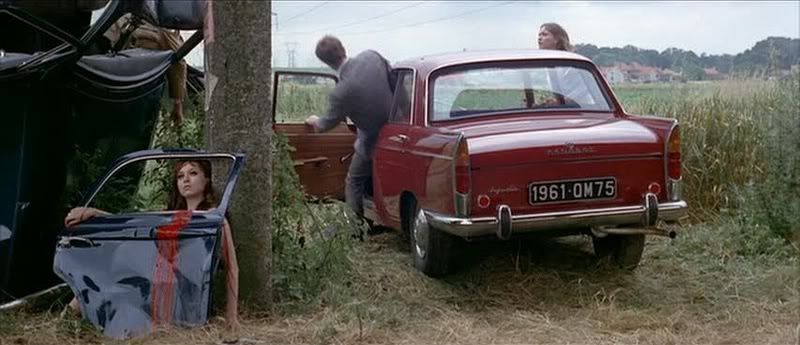
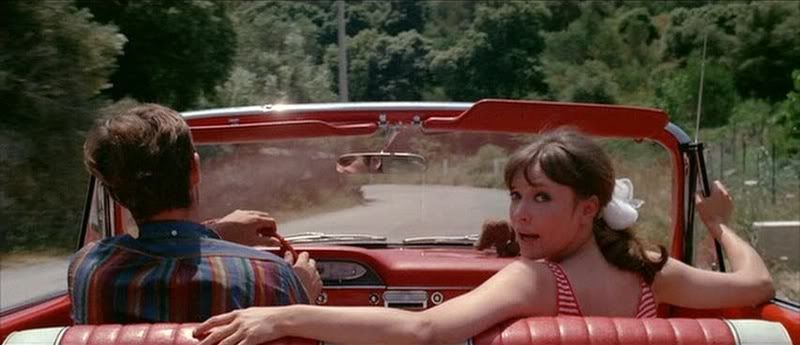
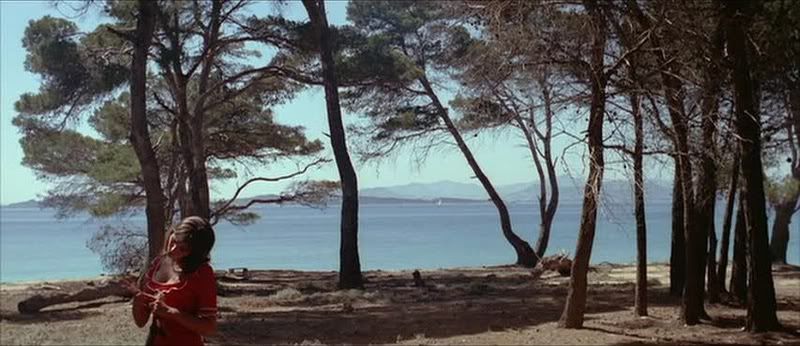
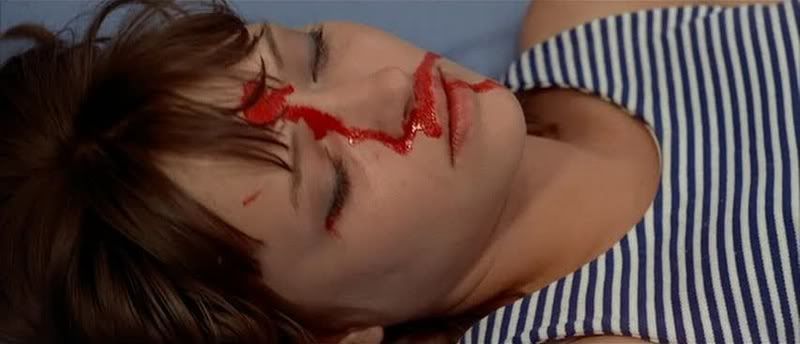




No comments:
Post a Comment